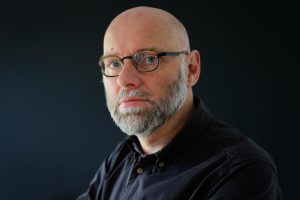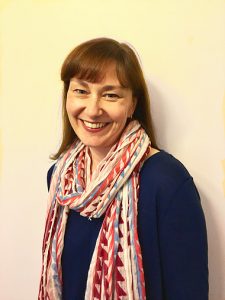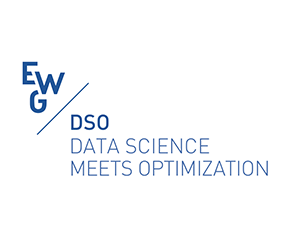KU Leuven

Title: Constraint Learning in Optimisation
Abstract: .
Bio: Luc De Raedt received his degree in Computer Science (Licentiaat Informatica) from the Katholieke Universiteit Leuven (Belgium) in 1986 and his Ph.D. in Computer Science (Dr. Informatica) from the same university in 1991. He worked at the Department of Computer Science of the Katholieke Universiteit Leuven (Belgium) from 1986 till 1999, where he held positions as teaching assistant (1986-1991), post-doctoral researcher of the Fund for Scientific Research, Flanders (1991-1999), part-time assistant professor (1993-1998) and part-time associate professor (1998-1999). From 1999 till 2006 he was a (full) Professor (C4) of Computer Science of the Albert-Ludwigs-University Freiburg and chair of the Machine Learning and Natural Language Processing Lab research group. At Freiburg, he was a director of the International Master of Applied Computer Science program. Since 2006, he has taken up a (full) research professorship (BOF) at the Department of Computer Science of the Katholieke Universiteit Leuven (Belgium), where he joined the lab for Declarative Languages and Artificial Intelligence. He lectures at the Katholieke Universiteit Leuven, and has also lectured at the Universities of Freiburg, Namur, Basel and Sienna. He was a member of the visition commission “Informatica” in the Netherlands (2006-2007) and “Kunstmatige Intelligentie” (2014-15). Luc De Raedt’s research interests are in Artificial Intelligence, Machine Learning and Data Mining, as well as their applications. He is currently working on probabilistic logic learning (sometimes called statistical relational learning), which combines probabilistic reasoning methods with logical representations and machine learning, the automation of data science (in his ERC project), the integration of constraint programming with data mining and machine learning principles, the development of programming languages for machine learning, and analyzing graph and network data. He is also interested in applications of these methods to chemo- and bio-informatics, to natural language processing, vision, robotics and action- and activity learning. He has been a coordinator or a principle investigator in several European and national projects, such as the ESPRIT III and IV projects on Inductive Logic Programming I and II, the EU FP 5 and 6 IST FET projects on Application of Probabilistic Inductive Logic Programming II, the ESPRIT IV project Aladin, the EU FP 5 IST FET project cInQ (Consortium on Inductive Querying), the EU FP 6 FET project IQ (Inductive Querying) and the recent EU FP 7 projects BISON (Bisociation Networks) and FIRST-MM (Flexible Skill Acquisition and Intuitive Robot Tasking for Mobile Manipulation in the Real World). He received an Advanced Grant from the European Research Council in 2015-16, the SYNTH project (Synthesising Inductive Data Models) is concerned with the automation of data science. He was program (co)-chair of the 7th European Conference on Machine Learning (1994, Catania, Sicily), the 5th International Workshop on Inductive Logic Programming (1995, Leuven, Belgium), the key organiser and co-chair of the program committees of the 5th European Conference on Principles and Practice of Knowledge Discovery in Databases and the 12th European Conference on Machine Learning. These conferences were co-located in Freiburg, September 2001. In 2005, he chaired (together with Stefan Wrobel) the program committee of the 22nd International Conference on Machine Learning. He is an area editor of the Theory and Practice of Logic Programming, an action editor for Artificial Intelligence, the Journal of Machine Learning Research and the Machine Learning Journal, a former member of the advisory board and a former associate editor of the Journal of Artificial Intelligence Research, a member of the editorial boards of New Generation Computing, AI Communications, Informatica, Data Mining and Knowledge Discovery, and the Journal of Applied Logic. He was an elected and founding member of the board of the International Machine Learning Society from 2004-2011. In 2005, he was elected as an ECCAI fellow. In 2012, he was the program chair of the 20th European Conference on Artificial Intelligence (ECAI 2012) in Montpellier.
The University of Melbourne

Abstract: Objective assessment of algorithm performance is notoriously difficult, with conclusions often inadvertently biased towards the chosen test instances. Rather than reporting average performance of algorithms across a set of chosen instances, we discuss a new methodology to enable the strengths and weaknesses of different algorithms to be compared across a broader generalised instance space. Initially developed for combinatorial optimisation, the methodology has recently been extended for machine learning classification, and to ask whether the UCI repository and OpenML are sufficient as benchmark test suites. Results will be presented to demonstrate: (i) how pockets of the instance space can be found where algorithm performance varies significantly from the average performance of an algorithm; (ii) how the properties of the instances can be used to predict algorithm performance on previously unseen instances with high accuracy; (iii) how the relative strengths and weaknesses of each algorithm can be visualized and measured objectively; and (iv) how new test instances can be generated to fill the instance space and offer greater insights into algorithmic power.
Bio: Kate Smith-Miles holds an Australian Laureate Fellowship (2014-2019) from the Australian Research Council, on the topic “Stress-testing algorithms: generating new test instances to elicit insights”. She is a Professor of Applied Mathematics at The University of Melbourne, and President of the Australian Mathematical Society. She was previously Head of the School of Mathematical Sciences at Monash University (2009-2014), Head of the School of Engineering and IT at Deakin University (2006-2009), and was appointed to her first professorship in IT at Monash University at the age of 35. Having held chairs in three disciplines (mathematics, engineering and IT) has given her a broad interdisciplinary focus, and she was the inaugural Director of MAXIMA (Monash Academy for Cross and Interdisciplinary Mathematical Applications) from 2014-2017. Kate has published over 250 refereed journal and international conference papers in the areas of neural networks, optimisation, machine learning, and various applied mathematics topics. She has supervised to completion 24 PhD students, and has been awarded over AUD$12 million in competitive grants. In 2010 she was awarded the Australian Mathematical Society Medal for distinguished research, and in 2017 she was awarded the E. O. Tuck Medal for outstanding research and distinguished service in applied mathematics by the Australian and New Zealand Industrial and Applied Mathematics Society (ANZIAM). Kate is a Fellow of the Institute of Engineers Australia and a Fellow of the Australian Mathematical Society (AustMS). In addition to her academic activities, she also regularly acts as a consultant to industry in the areas of optimisation, data mining, intelligent systems, and mathematical modelling.


